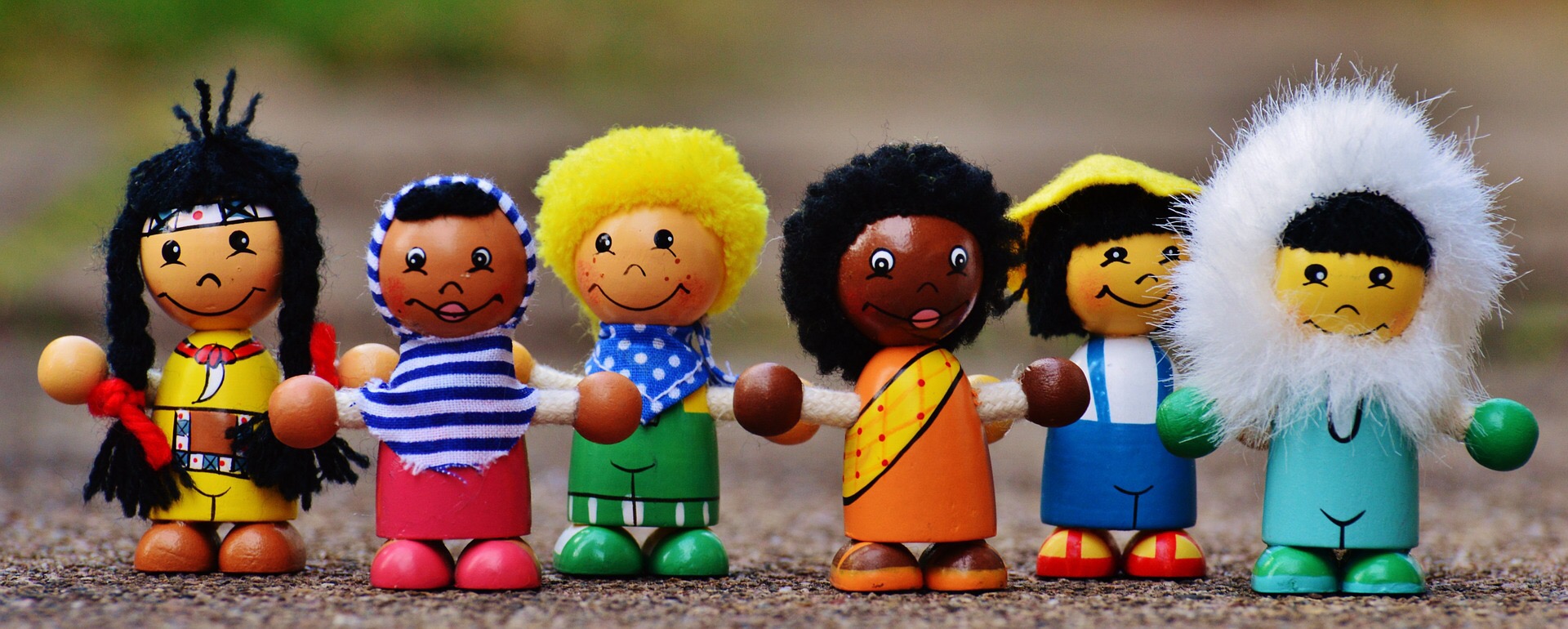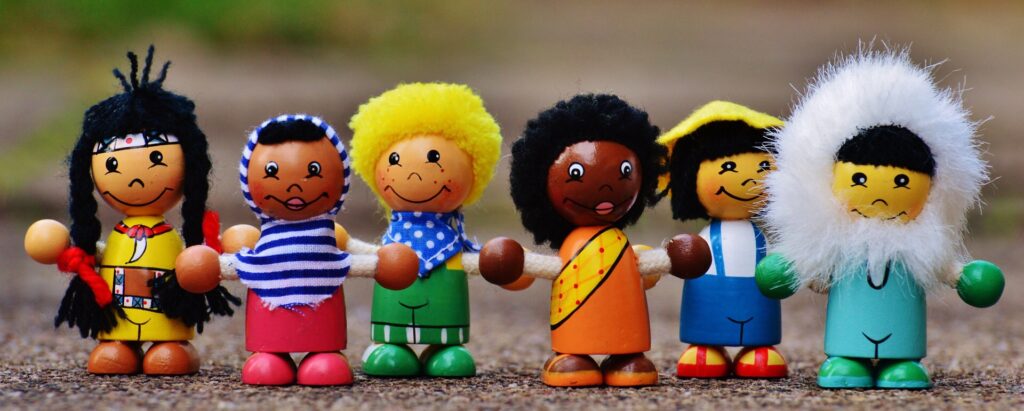Playing Culture in Intercultural Trainings and the Role of Simulation Games


Games are not only an integral part of our everyday routine from the early days of our life, but they are also regarded as an effective teaching method in (higher) education. Previous research has shown that business or simulation games in the classroom support problem-based learning (Csapó & Funke 2017). Further research has indicated that simulation games play a critical role in intercultural training whereby they provide both a creative and an effective method for intercultural trainers and a safe haven for trying out new behaviours to provide a better understanding on old behaviours. Consequently, these games contribute greatly to intercultural training. This blogpost seeks to determine the role of simulation games in intercultural training. More particularly, it will focus on simulation games within Humanities and Social Sciences, especially games to promote student’s cross-cultural competences. The target audience for the study will mainly comprise of teachers and researchers in higher education.
A Short History of Simulation Games
To better understand the role that simulation games play in intercultural training, it is necessary to have a look at the history of simulation games first. Huizenga (1938), in his influential book ‘Homo ludens’ loosely translated to ‘The playing man’ in Latin, simulation games have been part of the genesis of human culture. It involves people interacting with their surrounding and other people to discover themselves and enhance their personality, and reflect on their own strengths and weaknesses. A game opens up a surreal context and second reality that is more or less protected from negative consequences. The origin of simulation games has for a long time been linked to military training, so-called Sand Table Games that focus on tactical and strategic exercise. Since the 1950s, simulations games were introduced in business studies and engineering, and later gained importance in intercultural trainings that foster the development of cross-cultural competences. The general goal of intercultural learning is to understand the crucial importance of differences, the feeling of otherness and alterity in culturally overlapping situations. Such situations involve not only encounters between people who sometimes have different norms, values, and behaviours, but are also characterised by mutual insecurity and misunderstandings. Intercultural training measures should enable participants to deal positively with such feelings, to act fearlessly and without prejudice in opaque and often ambiguous situations, and to develop future-oriented cooperation strategies transcending the differential experiences that inhibit action. The major focus is on the development of associated social and communicative skills as well as the ability to critically reflect on oneself.
Role of Simulation Games
As evaluation studies have shown over time, practice-oriented learning within simulation games is not only the most effective way of learning but such games also offer many new opportunities to collect practical experiences, reflect these experiences under the guidance of trainers and to acquire new communication and interaction strategies to deal with other participants. In essence, they can “try out” these strategies in a sort of “playful seriousness”. The starting situation and background situation underlying the game can be fictitious and seemingly have – at least a first sight – nothing to do with the reality of the participants. Through such games, one should learn to take a critical stance regarding intransparent and unsure contexts as well as situations which are often associated with an increased distress, to analytically assess the respective circumstances and optimally align one’s own behaviour with it. Moreover, teamwork has proven to be an integral part of their conception and implementation, significantly contributing to the development of communicative and social skills. This includes different facets of interaction such as dealing with complexity, dynamics, lack of transparency, feeling of uncertainty in decision-making processes, conflicts of roles, and interests, and in some cases the pressure of time. These are just a few among many features that characterise culturally overlapping situations.
In most games, self-experiential and thus decisive learning processes are induced. Such inducement enables participants to work with contemporary cultural concepts and help to turn their attention away from the overcome concepts such as ‘national cultures’, understood as homogenous and unchangeable, to the process of characterising of cultures as meaningful orientation systems for human action and social interaction. Today’s research no longer sees cultures as mental ‘software packages’ tied to a particular (mostly state-based) territory or ethnicity, which they think ‘program’ their effects and subject those affected to the same patterns of thinking, feeling and behaviour. Considering that different life styles, cultural practices, and environments exist side-by-side in global societies, one can argue that human beings are involved in several collectives at the same time. Viewed in this way, families, work organisations, sports clubs, and other social entities also constitute specific cultures between which various people such as spouses, professionals, and football players navigate their lifestyle. However, people need to be always cognisant of the fact that, when negotiating one’s own position in a concrete context, different values, norms, and patterns of behaviour that are associated with their multiple affiliations can play a central role in the communication and decision-making processes of one and the same person.
In view of the various challenges outlined, it is necessary to consider alternative ways of learning. For instance, training students to memorise so-called ‘checklists’ with national cultural ‘characteristics’ of the respective people or to mimic representatives of other cultures in the game, does not create sustainable learning effects. Instead, this may even lead to a consolidation of stereotypes; that is what should be ideally avoided or reduced in intercultural trainings. In essence, communication processes and practice-oriented tasks are crucial in such simulations, especially if innovative strategies are to be developed, promoted, and implemented. Considering that communication can take place through marketing activities, press releases, advertisements, tweets, and videos, along other media, people who desire to stay in business for a longer duration need to know the exact goals and interests to be pursued by various stakeholders in their institutions to help accomplish their objective. However, it may not be practically possible for an individual to know everything or even have a complete overview of the whole event. This becomes even more complicated considering that there are different languages being used in an organisation. For instance, while most organisations embrace professional languages and cultures, the underlying administrative and promotional rationales often require interdisciplinary and intersectoral language skills to carry out successful projects. Finally, it is important to acknowledge that different people have been socialised in different educational institutions, societies, and cultures, all of which can significantly impact on their ways of communication. In view of this, the participants will be subjected to the handling of adaptive challenges in culturally overlapping situations. The decision as to whether a simulation becomes a political board game, a practice of medial disruption, a hymn to science or a feat of administrative waste solely depends on the expectations and actions of the players. In any case, there are various dilemmas that need to be solved collectively. Nevertheless, the performance of the game, the development of options for action and the constellation of actors enable a realistic experience.
In conclusion, simulation games allow learners to experience different cultures for a shorter period of time in addition to discovering new dimensions of self-awareness, cultural sensitivity, and communication skills. Consequently, simulation games help remove any impending cultural blinders that hinder effective interaction among people from various social, cultural, and ethnic backgrounds. Further still, the games are critical when it comes to motivating and engaging participants in intercultural training programs. Above all, simulation games provide an important tool for learning, training, and planning. Considering the important role that simulation games play in intercultural training towards developing skills for effective interaction with people of different cultural backgrounds, it is important that all relevant stakeholders in higher education embrace them for improved outcomes.
References
Csapó, B. & Funke, J. (2017). The Nature of Problem Solving: Using Research to Inspire 21st Century Learning. Paris: OECD Education Research and Innovation.
Huizenga, J. (1938). Homo Ludens. Routledge.

